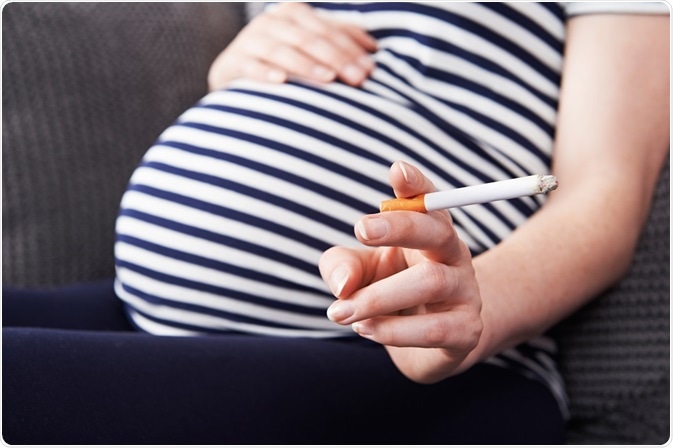Launching 1st March 2023. Also check out: https://www.thailandmedical.news/
Smoking during pregnancy causes serious health problems to both mother and child. A single cigarette contains about 4,000 chemicals, of which 70 have enough potential to cause cancer.

These chemicals eventually affect the growth of the fetus by narrowing the oxygen and nutrient supply, ultimately leading to various critical complications during pregnancy and childbirth. In the USA, studies conducted by various researchers have revealed that about 12–20% of women smoke during pregnancy, and around 1,000 stillbirth cases are recorded annually.
Smoking during pregnancy may adversely impact a child’s mental and behavioral development and may lead to hyperactivity. Passive smoking can also cause serious fetal developmental issues in the womb with respiratory ailments like asthma and lung infections in newborns.
Harmful chemicals such as nicotine, arsenic, lead, carbon monoxide, and cyanide are found in a cigarette. The fetus of a pregnant woman who smokes is exposed to these harmful substances. As a result, the blood vessels of the fetus are blocked, leading to a reduced supply of oxygen and nutrient-rich blood from entering the placenta, along with a rapid increase in the baby’s heartbeat.
Due to these factors, the development of the fetus may be abnormal, leading to a fetus with a weak immune system or other ailments and severe pregnancy complications. There are three medical conditions that may develop due to smoking: low-birth weight, preterm delivery, and infant death.
Smoking triggers higher genetic abnormalities in the development of a fetus. Risks of in the following medical conditions are found to be higher in women that smoke compared with other pregnant women.
Smoking induces several critical conditions during childbirth such as the following:
Passive smoking or second-hand smoking is a situation in which pregnant women are exposed to smoke by unconscious inhalation of smoke from cigarettes smoked by their partner or people around them.
The American Lung Association states that passive smoking also harms the fetus during pregnancy and can cause diseases like pneumonia and bronchitis in infants during or after birth. The breathing of the fetus inside the womb is inhibited by passive smoking pregnant mothers, leading to a pathogenesis of such diseases.
Researchers have found that third-hand smoking is also possible. This is via the gases or toxin residues of cigarettes in the environment (in clothes, bed, and carpet). These tends to cause cancer and other breathing problems, including asthma.
Vitamin C supplements are given to female smokers in their gestation period, in order to neutralize the negative impacts on the infant’s pulmonary function. Apart from this, discontinuation of smoking will be effective in safe guarding both the baby and the pregnant mother during this period.